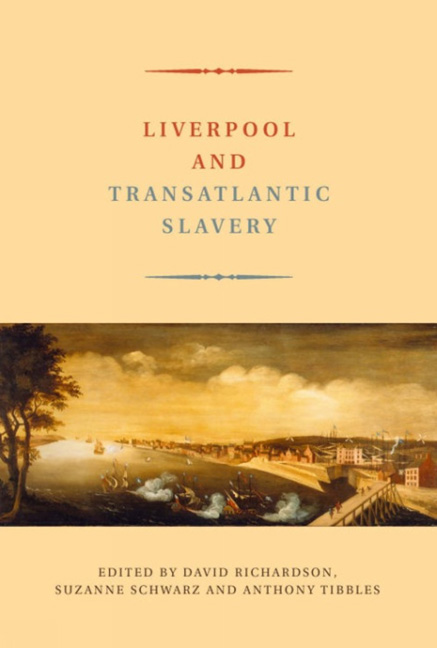Book contents
- Frontmatter
- Content
- Preface
- Notes on Contributors
- Introduction Liverpool, the African Slave Trade and Abolition Thirty Years On
- 1 Liverpool's Dominance in the British Slave Trade, 1740–1807
- 2 African Agency and the Liverpool Slave Trade
- 3 Human Capital in the British Slave Trade
- 4 Liverpool's Slave Trade to the Colonial Chesapeake: Slaving on the Periphery
- 5 The Liverpool Slave Trade, Lancaster and its Environs
- 6 The Atlantic Slave Trade and African Ethnicities in Seventeenth-Century Jamaica
- 7 The Wealth and Social Aspirations of Liverpool's Slave Merchants of the Second Half of the Eighteenth Century
- 8 ‘Cemented by the Blood of a Negro’? The Impact of the Slave Trade on Eighteenth-Century Liverpool
- 9 Commerce, Civilization and Christianity: The Development of the Sierra Leone Company
- 10 Abolitionism in Liverpool
- Index
Preface
- Frontmatter
- Content
- Preface
- Notes on Contributors
- Introduction Liverpool, the African Slave Trade and Abolition Thirty Years On
- 1 Liverpool's Dominance in the British Slave Trade, 1740–1807
- 2 African Agency and the Liverpool Slave Trade
- 3 Human Capital in the British Slave Trade
- 4 Liverpool's Slave Trade to the Colonial Chesapeake: Slaving on the Periphery
- 5 The Liverpool Slave Trade, Lancaster and its Environs
- 6 The Atlantic Slave Trade and African Ethnicities in Seventeenth-Century Jamaica
- 7 The Wealth and Social Aspirations of Liverpool's Slave Merchants of the Second Half of the Eighteenth Century
- 8 ‘Cemented by the Blood of a Negro’? The Impact of the Slave Trade on Eighteenth-Century Liverpool
- 9 Commerce, Civilization and Christianity: The Development of the Sierra Leone Company
- 10 Abolitionism in Liverpool
- Index
Summary
The essays in this volume were originally presented at the international conference on Liverpool and Transatlantic Slavery held at the Merseyside Maritime Museum in October 2005. The conference was jointly organized by the editors on behalf of the Historic Society of Lancashire and Cheshire and National Museums Liverpool.
The inspiration for the conference was the influential book Liverpool, the African Slave Trade, and Abolition edited by Roger Anstey and Paul Hair in 1976. This volume brought together a collection of papers that constituted the result of recent research by the contributors, but it also formed an important overall summary of Liverpool's role in the trade. While it remains a major contribution to the subject (and remarkably is still in print), we felt that it was an appropriate time to re–examine the advances in research on the subject in the intervening period. The approach of the bicentenary of the abolition of the British slave trade in 2007 and the development of the International Slavery Museum by National Museums Liverpool made it a particularly apposite moment in which to reflect upon Liverpool's role in transatlantic slavery.
The Anstey and Hair volume derived from a seminar held at the School of History at the University of Liverpool in May 1974; it seemed appropriate to follow this pattern and bring together a group of scholars to discuss recent developments in research. The original seminar comprised only scholars very largely based in Britain, but given Liverpool's overall importance in the trade and the amount of work and interest internationally, we cast our net more widely. The conference attracted over 160 delegates and both it and this publication have benefited hugely from this wider involvement.
Some 21 papers were delivered in six half–day sessions and topics included memorialization and representation, abolition and identity, African agency and the economic and social impact on Liverpool. We felt it was important to bring coherence to the volume rather than produce a published record of the whole conference. We have thus chosen ten papers which seem to us to encompass the principal aspects that informed Liverpool's involvement in transatlantic slavery and which also show it within the wider context of change in Africa and the Caribbean.
- Type
- Chapter
- Information
- Liverpool and Transatlantic Slavery , pp. vii - viiiPublisher: Liverpool University PressPrint publication year: 2007



